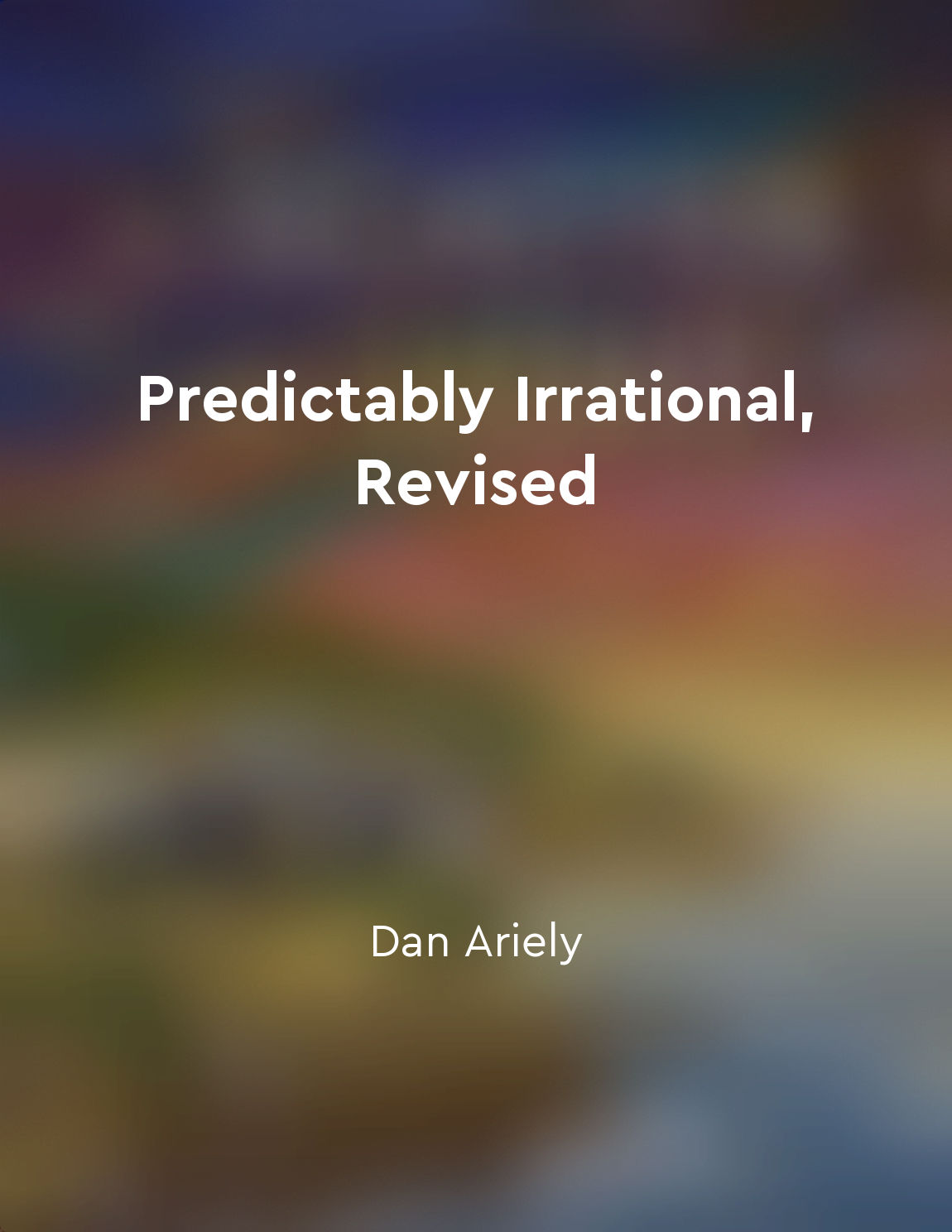Audio available in app
Humans are predictably irrational from "summary" of Predictably Irrational, Revised by Dan Ariely
Humans are predictably irrational. This statement may seem contradictory at first glance, but upon closer examination, it becomes clear that our irrationality follows patterns and can be predicted. Our decisions are often influenced by various biases and emotions that lead us away from making rational choices. Despite our best intentions, we are swayed by external factors that cloud our judgment and steer us in unexpected directions. One of the key reasons behind our predictably irrational behavior is our reliance on heuristics, or mental shortcuts, to make decisions. Instead of carefully weighing all the available information, we often opt for quick and easy solutions that may not always be the most logical. These shortcuts can lead us astray and cause us to make choices that defy rationality. Moreover, our tendency to compare and contrast options rather than evaluate them independently can also contribute to our irrationality. When faced with multiple choices, we often base our decisions on how they stack up against each other rather than on their individual merits. This can result in skewed perceptions and misguided preferences that do not align with our true desires. Another factor that influences our irrational behavior is our susceptibility to social influences and peer pressure. We are social creatures who seek validation and acceptance from others, which can lead us to make decisions that prioritize social norms over our own best interests. This desire to conform can override our rational thinking and push us to follow the crowd, even when it goes against our instincts. In addition, our emotions play a significant role in shaping our decisions and actions. We are not purely rational beings but are instead driven by a complex interplay of emotions that can cloud our judgment and lead us astray. Our emotional responses can override our logical reasoning and cause us to act in ways that defy rationality.- Our predictably irrational behavior stems from a combination of factors, including heuristics, social influences, and emotions. By understanding these influences and recognizing our inherent biases, we can begin to make more informed and rational decisions. While we may never be completely free from irrationality, being aware of our tendencies can help us navigate the complexities of decision-making with greater clarity and insight.


